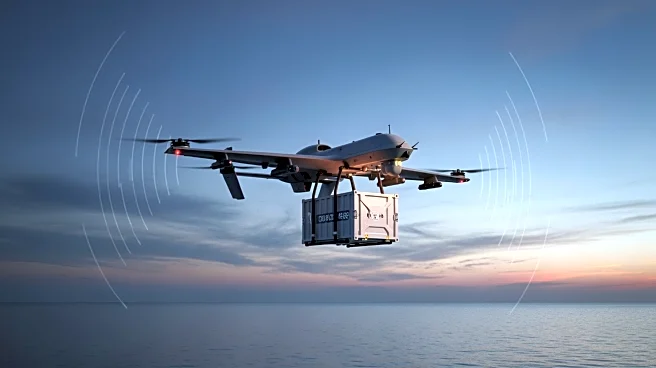What's Happening?
Philippine forces successfully completed a resupply mission to the BRP Sierra Madre, a territorial outpost in the South China Sea, despite Chinese interference. The mission involved transporting food,
fuel, and new personnel to the Second Thomas Shoal, a disputed area claimed by both the Philippines and China. During the operation, Chinese Coast Guard ships jammed communications, a tactic believed to prevent potential drone surveillance by the United States and other allies. This mission marks the 12th successful resupply effort since last year, following a temporary nonaggression agreement between China and the Philippines in July 2024. Despite the agreement, tensions remain high, with China deploying additional coast guard and militia ships to the area.
Why It's Important?
The successful resupply mission underscores the ongoing territorial disputes in the South China Sea, a critical global trade route. The Philippines' ability to maintain its outpost despite Chinese interference highlights the strategic importance of the region and the complex geopolitical dynamics at play. The U.S., as a treaty ally of the Philippines, has a vested interest in ensuring freedom of navigation and upholding international law in the area. The situation also reflects broader regional tensions, with multiple countries, including Vietnam, Malaysia, Brunei, and Taiwan, having overlapping claims. The continued presence of Chinese forces and their aggressive tactics could lead to further confrontations, impacting regional stability and international relations.
What's Next?
Future developments may include increased diplomatic efforts to resolve the territorial disputes peacefully. The Philippines may continue to strengthen its military presence and alliances with other countries, such as the U.S. and Japan, to counter Chinese aggression. Additionally, the international community may push for adherence to international maritime laws to prevent further escalation. Monitoring China's military activities and diplomatic responses will be crucial in assessing the potential for conflict or cooperation in the region.









